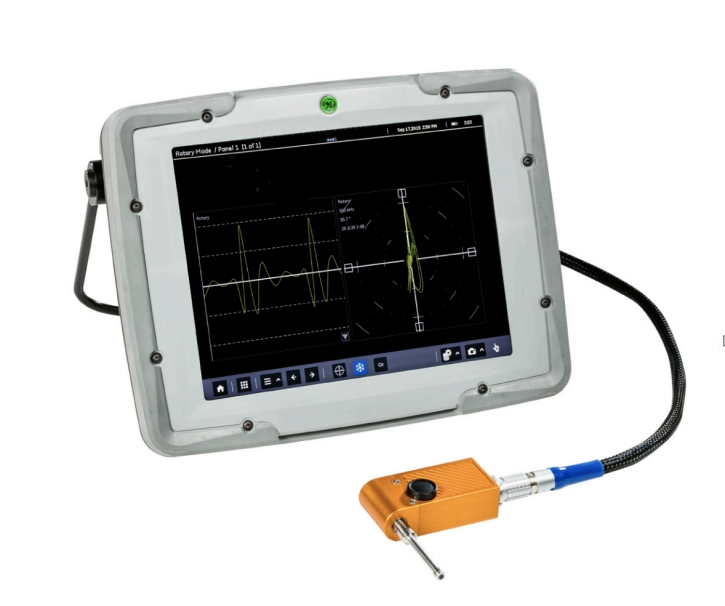
What is Eddy Current testing?
- Eddy Current testing is the use of electromagnetic induction to detect and characterize surface and sub-surface flaws in conductive materials
- Eddy current sensors sense displacement and are formed when a changing magnetic field intersects a conductor
- Probes sense the change and find out the distance between the probe and the test material
- Electric current is induced into the test subject and the change in the current is noticed and determines a fault. There will be a corresponding change in the phase and amplitude of the signal that is measured.
- Eddy Current can measure metal thickness so erosion or metal thinning can be detected
- Eddy current is one of six methods of NDT testing: eddy current, magnetic-particle, liquid penetrant, radiographic, ultrasonic, visual testing
Advantages of Eddy Current Testing
- Faster scanning speed than ultrasonic testing
- Minimal preparation for surfaces to be tested
- EC can test through several millimeters of coating
- Very sensitive - can detect very small cracks
- Testing devices are portable with immediate results/feedback
- The test equipment does not need to be in direct contact with the item being tested
- Production is not interrupted due to fast and automated testing
- Groups of sensors can be used to provide a larger area scan
Eddy Current Applications
- Aerospace Industry
- Petrochemical Industry
- Material sorting- used to determine that the proper materials are being used for a job
- Used to determine material characteristics/purity of the metal
- Tube and wire testing
- Weld testing
- Coating thickness measurement

